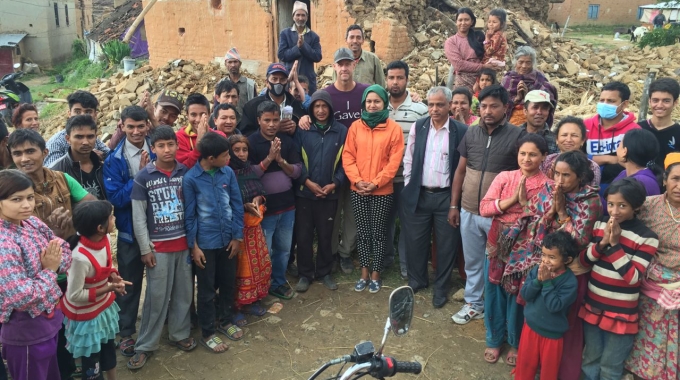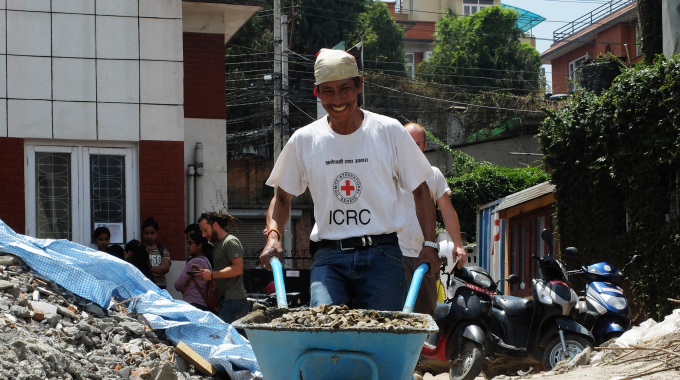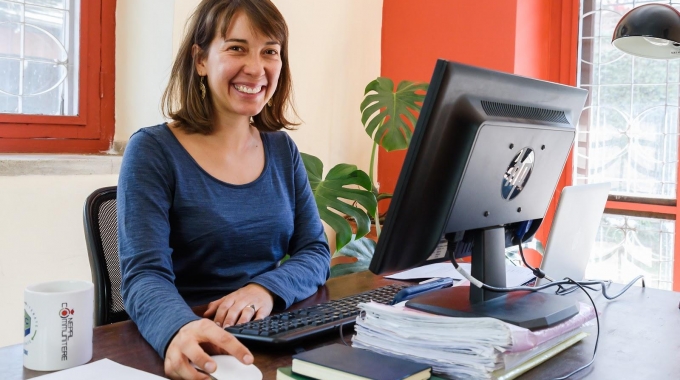
Tenant Spotlight: Meet Linda Vega!
Linda Vega moved to Nepal about 2 and a half years ago and since then, she has been a part of the Nepal Communitere family. She is an economist and currently is consulting independently for the International Labour Organization. Originally from Colombia, Linda has been a globetrotter for the last 9 years. With a spirited soul and a desire to learn the diversified culture around, she packed her bag to Italy and stayed there for a year in the beginning. Then she moved to Bangkok for an internship where she engaged herself with a consultancy for the United Nations until the following year. This experience heightened her interest in socio-economics and she decided to pursue her Masters in Labour and Development in London and returned back to Bangkok to further her professional opportunities. She describes this worthwhile journey as an enriching part of her life where she learned how to be self-reliant, confident and independent.
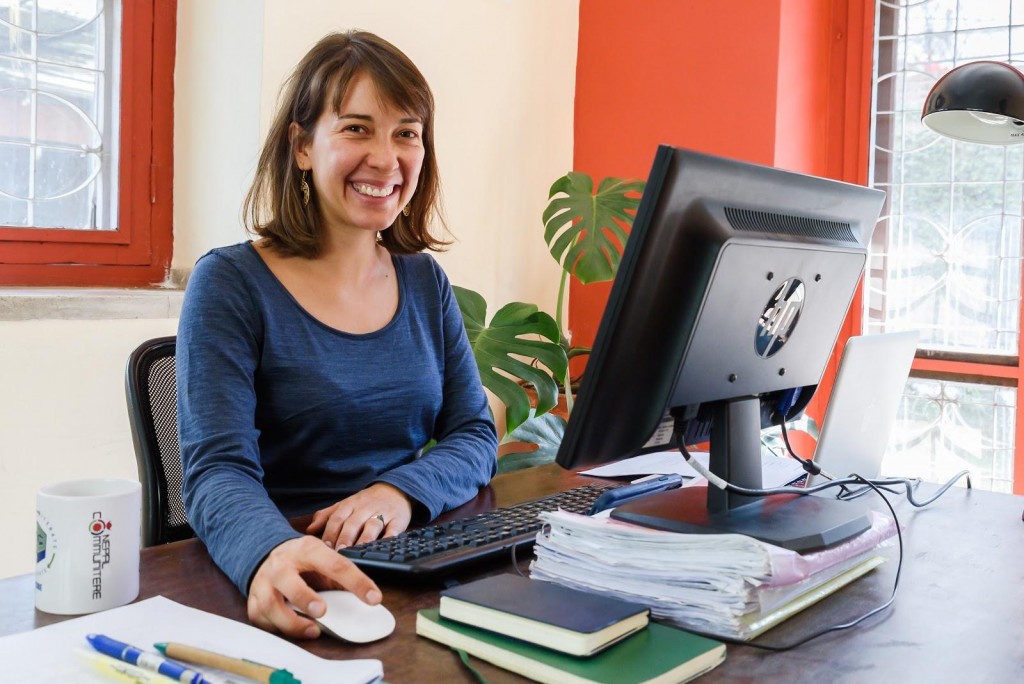
‘Independent Consultant’ is quite a new subject for people in Nepal. So, could you please let us know more about your profession?
Independent consultancy is basically like a chartered assignment. It’s mainly research-based where you are hired to do projects like analytical reports. At the moment, I am working on an assignment on the business benefits resulting from promoting women senior and management positions in Indonesia, Philippines and Vietnam. So, I am analyzing labour, gender and socio-economic data of these countries in order to show that having a diversity of opinions and thought at the workplace directly contributes to enterprises’ bottom line. My contracts usually come from Bangkok, the regional office for Asia and the Pacific and sometimes from Headquarters in Geneva, Switzerland.
What inspired you to be one?
I have a double undergraduate degree in Finance and International Commerce and Economics. So, while in college, my interest in quantitative analysis grew along with a comprehensive understanding of the economic and social issues in our society. That’s the reason I thought it would be a great fit to be a consultant as I will be able to focus on addressing socio-economic challenges and put my thoughts on the table to benefit others. On the other hand, the reason for opting as ‘an independent consultant’ is because of the flexibility that it has to offer. I get hired to conduct short-term assignments for a particular output and specific time frame and once I submit the assignment, the work is done. On top of that, I have geographical flexibility, meaning that I can work from anywhere in the world, so that allows me to go back home at least once yearly. Being an independent consultant also means that you can work with several organisations without any binding complications. You can take single or multiple projects as per your convenience.
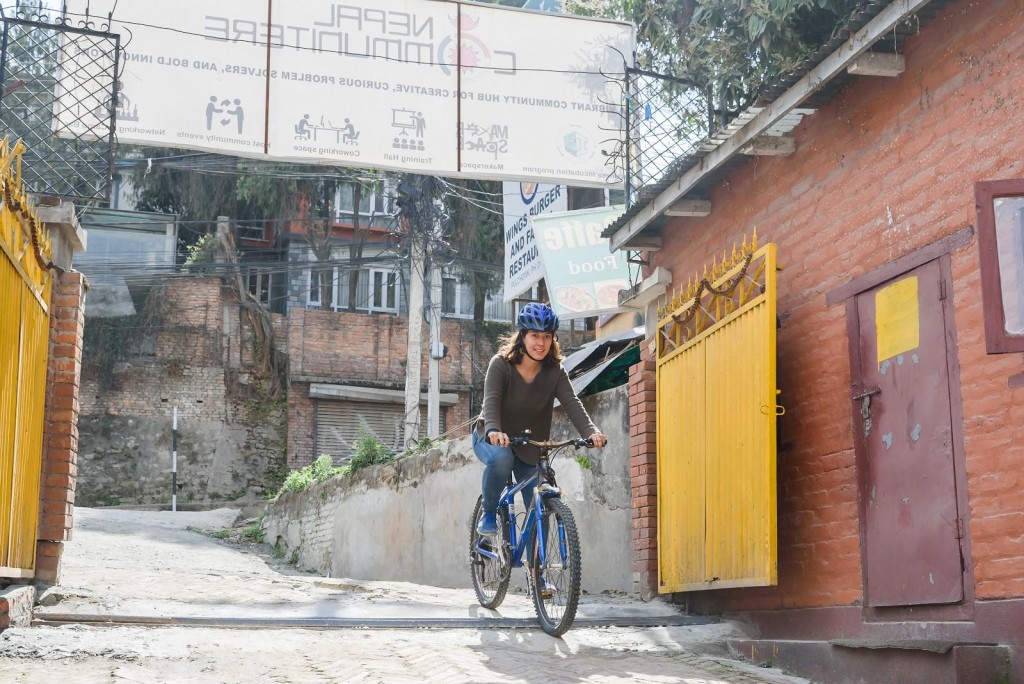
How did you find out about Nepal Communitere and how do you feel being one of our oldest tenants?
I am living at Patan Dhoka and was looking for a co-working space where I can set-up my own personal office. The concept of ‘working from home ‘ is not my cup of tea because I find myself more productive in a professional sphere. So I was constantly searching for office space when one of my friends introduced Nepal Communitere to me and luckily they had a vacant co-working space. And since then, it has been my second home. I was super grateful when Nepal Communitere gave me the office space with the freedom to decorate it by myself. So I painted the room and brought some of my plants to make it look nice.
And regarding my feelings as one of the oldest tenants, I always feel happy. The longer I have been here, the more networks I have accumulated with other fellow tenants. I feel lucky to have found a good place with warm and hospitable people, amazing meals and a clean environment.
Since you are focusing on workplace gender inclusiveness in different countries, what’s your take on Nepali women taking part in senior management roles?
Well, undoubtedly the conditions of working women in Nepal have improved a lot. Having said that, it still has structural issues hindering women to join senior management positions. There are some religious and cultural aspects that constraint women and put them in a disadvantaged position compared to men. So we need a behavioural and cultural change. The situation in other countries was like this before, but over the years we have seen positive change on gender issues in general, which translated into the workplace. Increasingly workplaces are being more intentional about creating a diverse and inclusive environment for everyone, including women, religious and ethnic minorities, LGBTQ communities, disabled people, among others. In fact, we can see how the conversation is in different stages in Nepal and other countries. But I am really positive that access to equal opportunities will come for Nepali women and women across the world.

